|

|

|

|

|

|
|
Monday,
July 6, 2009
 Signs
of the Times
- I like to take photos of interesting, quirky, funny, sad, or
just plain poignant scenes. Often times, it is a photo of a sign
that catches my attention (see
here
and
here,
for example). But, not always. I have decided to do a
better job of collecting these images and posting them up on a regular
basis. So, don't be surprised to see more "Signs of the
Times" in future entries of the Kaibab Journal. Signs
of the Times
- I like to take photos of interesting, quirky, funny, sad, or
just plain poignant scenes. Often times, it is a photo of a sign
that catches my attention (see
here
and
here,
for example). But, not always. I have decided to do a
better job of collecting these images and posting them up on a regular
basis. So, don't be surprised to see more "Signs of the
Times" in future entries of the Kaibab Journal.

 Lucky
for me, I didn't get caught.
I was hiking down to Indian Garden,
on the Bright Angel Trail, in the Grand Canyon, on July 1st.
In the outhouse there, this sign was posted above the toilet.
Can you imagine having to pay a $100 fine because you had no
trash?!
Lucky
for me, I didn't get caught.
I was hiking down to Indian Garden,
on the Bright Angel Trail, in the Grand Canyon, on July 1st.
In the outhouse there, this sign was posted above the toilet.
Can you imagine having to pay a $100 fine because you had no
trash?!
|

 I really don't
like the sound of this one.
I was in the Phoenix airport
recently, and a deli outside of the security check point had
this sign prominently displayed. And, it is so wrong on so
many levels. First, doesn't
"grab and go"
seem vaguely criminal? Then, who could possibly believe
that buying a cold sandwich to take on the plane would make your
experience akin to being in
"paradise"?
Is it a cruel joke? And, the kicker, which had me do a
double-take, was the reference to a
"security-friendly"
sandwich. Exactly, what is that? Is it one that the
security guards like? Is it one that doesn't have more
than 3 ounces of mayo? Really, I want to know.
I really don't
like the sound of this one.
I was in the Phoenix airport
recently, and a deli outside of the security check point had
this sign prominently displayed. And, it is so wrong on so
many levels. First, doesn't
"grab and go"
seem vaguely criminal? Then, who could possibly believe
that buying a cold sandwich to take on the plane would make your
experience akin to being in
"paradise"?
Is it a cruel joke? And, the kicker, which had me do a
double-take, was the reference to a
"security-friendly"
sandwich. Exactly, what is that? Is it one that the
security guards like? Is it one that doesn't have more
than 3 ounces of mayo? Really, I want to know.
|

|
 Patriotic menu -
I like it!
On the way back from Phoenix, we drove through the small hamlet of
Pine, and decided to have lunch at HB's. In the middle of the
second page of the laminated menu is a photo of Mt. Rushmore and the
words, "Freedom, Liberty, Peace, Trust, Justice,
Harmony." I don't know how they chose those six words, and
it is something of a chuckler that right below this they feature,
"The Lighter Side of HB's." BTW, the food is great.
Patriotic menu -
I like it!
On the way back from Phoenix, we drove through the small hamlet of
Pine, and decided to have lunch at HB's. In the middle of the
second page of the laminated menu is a photo of Mt. Rushmore and the
words, "Freedom, Liberty, Peace, Trust, Justice,
Harmony." I don't know how they chose those six words, and
it is something of a chuckler that right below this they feature,
"The Lighter Side of HB's." BTW, the food is great.
|

 Not eligible for
concealed carry permits.
One of my neighbors seems to have
upgraded their home security system. It isn't a very heavy
duty tank, but it is a tank nonetheless! Perhaps they know
something about rising taxes that I don't???
Not eligible for
concealed carry permits.
One of my neighbors seems to have
upgraded their home security system. It isn't a very heavy
duty tank, but it is a tank nonetheless! Perhaps they know
something about rising taxes that I don't???
|

 St. Louis Tea
Party - April 2009.
Cara Lynn was in St. Louis on tax
day this past spring and caught the big tea party being held in
the park downtown. She snapped this great photo of the
Arch, the old courthouse and this protester's Obama and
Socialism poster. Priceless. [Click this photo to
see a larger image.]
St. Louis Tea
Party - April 2009.
Cara Lynn was in St. Louis on tax
day this past spring and caught the big tea party being held in
the park downtown. She snapped this great photo of the
Arch, the old courthouse and this protester's Obama and
Socialism poster. Priceless. [Click this photo to
see a larger image.]
|
|
|

|
|
Friday,
July 10, 2009
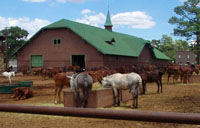  Of
Mules and Men
- The
National
Park Service is considering
whether to change property rights,
with regard to mule
travel, at the Grand Canyon. There were some public
"scoping" sessions back in early June. I attended one,
but there wasn't any formal decision to study and comment on - it was
all very open ended. I challenged one of the park spokesman here
with the comment that there must be some agenda motivating all this
time and energy. I suspect it is an
attempt to reduce and restrict mule travel in the canyon. He
said that the ongoing "conflict" between mules and hikers
necessitated a periodic review of these conditions. I suggested
that the appropriate solution to dealing with any perceived
"conflict" was to expand the trail infrastructure to
accommodate more users, but that I doubt whether anyone at the park
service would ever seriously consider such an outcome. So it
goes. The photo, above, shows the mule barn at the Grand Canyon
(click to see a larger image) - the oldest commercial facility
currently being used in the United States, as I understand it.
Since the park finished its 1995 General
Management Plan, this has been on the chopping block. As
usual, the idea is to preserve the structure and turn it into an
interpretation site, while moving the actual operation somewhere else,
mostly out of sight of the visitors! Of
Mules and Men
- The
National
Park Service is considering
whether to change property rights,
with regard to mule
travel, at the Grand Canyon. There were some public
"scoping" sessions back in early June. I attended one,
but there wasn't any formal decision to study and comment on - it was
all very open ended. I challenged one of the park spokesman here
with the comment that there must be some agenda motivating all this
time and energy. I suspect it is an
attempt to reduce and restrict mule travel in the canyon. He
said that the ongoing "conflict" between mules and hikers
necessitated a periodic review of these conditions. I suggested
that the appropriate solution to dealing with any perceived
"conflict" was to expand the trail infrastructure to
accommodate more users, but that I doubt whether anyone at the park
service would ever seriously consider such an outcome. So it
goes. The photo, above, shows the mule barn at the Grand Canyon
(click to see a larger image) - the oldest commercial facility
currently being used in the United States, as I understand it.
Since the park finished its 1995 General
Management Plan, this has been on the chopping block. As
usual, the idea is to preserve the structure and turn it into an
interpretation site, while moving the actual operation somewhere else,
mostly out of sight of the visitors!
The deadline for commenting on this issue was June 22, and I didn't
realize that until June 23. Doh! But, whatever action they
decide to pursue, there will be another public airing, so I can
comment then. Still, I penned the following letter to the editor
of our local paper, which ran on Tuesday,
June 30:
| To the editor:
One of the
truisms that emerge when the government owns desirable
resources is that special interests constantly seek rule
changes that profit them, while disadvantaging and restricting
others. At the Grand Canyon, we see this process in
perpetual motion, as some seek to curtail overflights,
eliminate motorized travel on the river, destroy lodging and
commercial activity on the rim and, now, there is an attempt
to relegate mule traffic into that vast chasm to the dust bin
of history.
The
selfish behavior of such individuals and groups should be
patently obvious. Rather than embrace the concept of
liberty, theirs is the morality of the gun. They seek
more and more restrictions, moving us towards a point of
ultimate conformity with some grotesque “ideal” state of
being.
I have
been hiking in the Grand Canyon for over thirty years. I
have logged many thousands of miles on its trails and hundreds
of nights camped in its backcountry. Yet, I don’t mind
the fact that some people would rather take a mule ride into
the canyon. And, I don’t mind if some people take a
motorized raft trip down the river. I guess that makes
me tolerant of others who choose to see the Grand Canyon in
different ways than I do.
If the
park service really wanted to reduce hiker/mule conflicts,
they would work to expand the infrastructure of trails at the
park. That sound you hear is the collectivist shudder at
the notion that we can actually make the Grand Canyon more
accessible! |
A few other comments:
 The selfish
issue.
I am always amazed at how easily people fail to see the
"selfishness" of their opinions. Instead, they seem to
think that their "vision" is a reflection of a true and just
outcome. I guess that makes them rather pretentious, and, as I
infer, not at all tolerant of others.
The selfish
issue.
I am always amazed at how easily people fail to see the
"selfishness" of their opinions. Instead, they seem to
think that their "vision" is a reflection of a true and just
outcome. I guess that makes them rather pretentious, and, as I
infer, not at all tolerant of others.
This issue is made even more awful, in my
opinion, when I read some comments that mules should continue because
they help those who cannot physically hike these distances. The
presumption is that if you are healthy enough to hike, you shouldn't
be allowed to ride the mule. Yeech! I have only ridden the
mules once, and clearly I am able to hike. It was a fantastic
trip - I was having a great time looking all around me at the Grand
Canyon instead of looking down at the trail!
 Expanding
the infrastructure.
While nobody with any authority will ever consider this, I do have a
more specific suggestion here. Improve the Hermit's Trail and
re-establish the old Hermit Camp. In other words, turn it into a
"Phantom Ranch Lite." Don't allow the mules back on
this trail, so that it can be a viable alternative for hikers,
complete with canteen, bunkhouses, et al. Re-establish the old
tram as the supply conduit. That way, the park would not only
honor the history of the area, but actually build on it!
Expanding
the infrastructure.
While nobody with any authority will ever consider this, I do have a
more specific suggestion here. Improve the Hermit's Trail and
re-establish the old Hermit Camp. In other words, turn it into a
"Phantom Ranch Lite." Don't allow the mules back on
this trail, so that it can be a viable alternative for hikers,
complete with canteen, bunkhouses, et al. Re-establish the old
tram as the supply conduit. That way, the park would not only
honor the history of the area, but actually build on it!
 I am not such an
outlier on this issue.
One other letter was published
by the newspaper on this topic, and also in favor of the
mules. And, some of the Yahoo group (Grand Canyon
Hikers) seem fine with the mules as well (although, perhaps
a minority). Also, when I was up at the park on July
1st to stand in line for a November hiking permit, another
local came up to me and commented that he mostly agreed with
me on the points raised in the letter, and he is
well-connected to the liberal side of this community.
And, my letter received a 3.8 rating on the web (out of 5.0)
with 29 "votes." That wasn't enough to crack my way
into the top 5, but a very respectable score all in all.
I am not such an
outlier on this issue.
One other letter was published
by the newspaper on this topic, and also in favor of the
mules. And, some of the Yahoo group (Grand Canyon
Hikers) seem fine with the mules as well (although, perhaps
a minority). Also, when I was up at the park on July
1st to stand in line for a November hiking permit, another
local came up to me and commented that he mostly agreed with
me on the points raised in the letter, and he is
well-connected to the liberal side of this community.
And, my letter received a 3.8 rating on the web (out of 5.0)
with 29 "votes." That wasn't enough to crack my way
into the top 5, but a very respectable score all in all.
|
|

|
|
Wednesday,
August 5, 2009
 NAU
Parking Newspeak
- There are so many colossal issues to write about (health scare,
cap and tax, and innovation-killing taxes, to name a few), that it is
easy to be overwhelmed by such a task. So, I'll defer on those
for NAU
Parking Newspeak
- There are so many colossal issues to write about (health scare,
cap and tax, and innovation-killing taxes, to name a few), that it is
easy to be overwhelmed by such a task. So, I'll defer on those
for 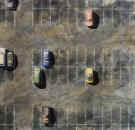 now,
and focus on a local matter that has me especially irritated:
on-campus parking at Northern Arizona University. Last year I
paid $60 for a permit in an unpaved lot on the edge of campus.
This "yellow" permit was good only in that one lot, Monday
through Friday, from 7:30 a.m. until 4:30 p.m. now,
and focus on a local matter that has me especially irritated:
on-campus parking at Northern Arizona University. Last year I
paid $60 for a permit in an unpaved lot on the edge of campus.
This "yellow" permit was good only in that one lot, Monday
through Friday, from 7:30 a.m. until 4:30 p.m.
Right next to this yellow lot is a paved commuter lot, which requires
a "black" permit. During the summer, this lot is
mostly empty. Since it can rain a lot during the summer, the
yellow lot can become quite a mess. So, at the end of this past
spring term I wrote to our Parking Services and asked if they wouldn't
allow the yellow permit parkers to use the adjacent lot during the
summer, which would help extend the life of the unpaved lot. [I
also blogged about this last summer - Spaces,
Spaces, Everywhere] The reply I got was disheartening - this
lot was scheduled to close down this summer, paved, and turned into
another commuter lot. The yellow lot was to be no more.
The income effects on me are significant - today I bought the only
kind of permit available to me, at a cost of $314. That's more
than a whopping 500% increase in parking fees for me!
So, today I have been looking over the Parking Services' website,
and I am just amazed at how good an example it is of fuzzy logic,
misdirection, obfuscation, and, well . . . Orwellian newspeak.
To wit:
  The
purpose of meters.
The home page notes,
"Meters
on campus have been reduced to open up more student parking. Meters
are intended for visitors. Student permit owners are prohibited from
parking at meters." Well, I understand
that parking should be made available to visitors, and I understand
the notion that the metered parking should be reserved for these
visitors. But, why is the prohibition only applied to
students? I wrote to Parking Services and asked if faculty could
park at the meters and received a reply of "Yes," noting
that, of course, we have to pay for the meter. So, if they are
intended for visitors, but employees can park there, but students
can't, what do we conclude? It's not rocket science.
The
purpose of meters.
The home page notes,
"Meters
on campus have been reduced to open up more student parking. Meters
are intended for visitors. Student permit owners are prohibited from
parking at meters." Well, I understand
that parking should be made available to visitors, and I understand
the notion that the metered parking should be reserved for these
visitors. But, why is the prohibition only applied to
students? I wrote to Parking Services and asked if faculty could
park at the meters and received a reply of "Yes," noting
that, of course, we have to pay for the meter. So, if they are
intended for visitors, but employees can park there, but students
can't, what do we conclude? It's not rocket science.
 The
purpose of the "Park N Stay" lot.
From the home page,
"Park
& Stay, originally intended for residential students as a means to
decrease vehicles driving on campus, was only being used by commuters.
Therefore, it will be paved and converted to commuter parking."
This is false. The lot was designed to do exactly what it says -
get people to park in this one lot and walk, bike, or bus around
campus. The point was to reduce
on-campus traffic. And, the idea is sound. The fact that a
lot of folks like me (especially, the staff), who work on that end of
campus, found this to be a nice choice doesn't negate the fact that I
did not drive around campus to other lots (my permit wouldn't be
valid). Now that the lot is being paved over, the justification
for it has changed in order to validate this decision. I don't
know if this would make Orwell proud, or have him rolling over in his
grave.
The
purpose of the "Park N Stay" lot.
From the home page,
"Park
& Stay, originally intended for residential students as a means to
decrease vehicles driving on campus, was only being used by commuters.
Therefore, it will be paved and converted to commuter parking."
This is false. The lot was designed to do exactly what it says -
get people to park in this one lot and walk, bike, or bus around
campus. The point was to reduce
on-campus traffic. And, the idea is sound. The fact that a
lot of folks like me (especially, the staff), who work on that end of
campus, found this to be a nice choice doesn't negate the fact that I
did not drive around campus to other lots (my permit wouldn't be
valid). Now that the lot is being paved over, the justification
for it has changed in order to validate this decision. I don't
know if this would make Orwell proud, or have him rolling over in his
grave.
Also, I should note that declaring it as
"intended for residential students" is also disingenuous.
Those students have to buy "red" permits and can only park
in their residential zone on campus. That is, they have no
ability to drive around campus to other lots during the day anyway!
 Efficiency
is in the eyes of the permit holder.
We have only four categories of parking permits - employee ($314),
student commuter ($324), student on-campus resident ($324) and our new
parking garage ($418). Insofar as the latter is concerned, the
web page states, "Parking
Garage permits will only be permitted to park in the garage to ensure
this facility is efficiently used and vehicles are not taking a second
parking stall elsewhere on campus." How is it
possible that a full garage is a meaningful measure of
efficiency? Well, it isn't. But, it is symptomatic of the
kind of "thinking" that goes on in government
agencies. Efficiency refers to how well we use our scarce
resources relative to our needs and desires. That's why my
college dean has his own parking space, even though he is gone every
other week on some kind of fund raising effort. It would be the
height of inefficiency to require him to stay at the college every day
just so his parking space can be occupied. [Of course, a better
way would be to auction off spaces, maybe on a daily basis . . .]
Efficiency
is in the eyes of the permit holder.
We have only four categories of parking permits - employee ($314),
student commuter ($324), student on-campus resident ($324) and our new
parking garage ($418). Insofar as the latter is concerned, the
web page states, "Parking
Garage permits will only be permitted to park in the garage to ensure
this facility is efficiently used and vehicles are not taking a second
parking stall elsewhere on campus." How is it
possible that a full garage is a meaningful measure of
efficiency? Well, it isn't. But, it is symptomatic of the
kind of "thinking" that goes on in government
agencies. Efficiency refers to how well we use our scarce
resources relative to our needs and desires. That's why my
college dean has his own parking space, even though he is gone every
other week on some kind of fund raising effort. It would be the
height of inefficiency to require him to stay at the college every day
just so his parking space can be occupied. [Of course, a better
way would be to auction off spaces, maybe on a daily basis . . .]
 The
ecoPASS as fraud.
Don't want to pay to park on campus? Well, there is another
option - get an "ecoPASS" and ride the bus into
school. And, it's free! Of course, it isn't free.
You have expend an inordinate amount of time, energy and effort to use
the bus system, especially if you live many miles from campus.
On their ecoPASS page,
they state, "Using your
ecoPASS helps reduce campus traffic congestion, lessens the impact on
employee parking, reduces air
The
ecoPASS as fraud.
Don't want to pay to park on campus? Well, there is another
option - get an "ecoPASS" and ride the bus into
school. And, it's free! Of course, it isn't free.
You have expend an inordinate amount of time, energy and effort to use
the bus system, especially if you live many miles from campus.
On their ecoPASS page,
they state, "Using your
ecoPASS helps reduce campus traffic congestion, lessens the impact on
employee parking, reduces air 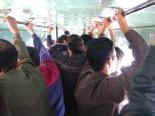 pollution,
and expands the range of cyclists and walkers." Does
it? Probably not. You face increased congestion for
on-campus bus services. What lessening the "impact" on
parking means is beyond me, but if it was something real, they
wouldn't mind letting garage permit holders park somewhere other than
the garage! And, the last thing I want to see on campus is an
increased "range of cyclists." They are already a
hazard to my health! The web page touts the pass as a way to
"Relax On Your Way To Work." That doesn't sound like
any bus system I've ever heard of. In fact, I recently received
an e-mail from a student of mine that just started working in
Washington D.C. and has to take the not-so-relaxing metro to work
every day. Her take - "Being
productive during the commute is tough, especially when you have zero
personal space most days. Sometimes the occasional person tries to
pull out a laptop and work on the train, and it never lasts long with
how close people cram in. I generally just read the paper in the
mornings, but a lot of people sleep, such as the fellow next to me
this morning that I had to keep pushing off my shoulder."
Yeech! pollution,
and expands the range of cyclists and walkers." Does
it? Probably not. You face increased congestion for
on-campus bus services. What lessening the "impact" on
parking means is beyond me, but if it was something real, they
wouldn't mind letting garage permit holders park somewhere other than
the garage! And, the last thing I want to see on campus is an
increased "range of cyclists." They are already a
hazard to my health! The web page touts the pass as a way to
"Relax On Your Way To Work." That doesn't sound like
any bus system I've ever heard of. In fact, I recently received
an e-mail from a student of mine that just started working in
Washington D.C. and has to take the not-so-relaxing metro to work
every day. Her take - "Being
productive during the commute is tough, especially when you have zero
personal space most days. Sometimes the occasional person tries to
pull out a laptop and work on the train, and it never lasts long with
how close people cram in. I generally just read the paper in the
mornings, but a lot of people sleep, such as the fellow next to me
this morning that I had to keep pushing off my shoulder."
Yeech!
But, there is one more point here. Not
only is this a fraud insofar as our choice go, but it is an accounting
fraud as well. The passes are not free. The university has
to use taxpayer money to pay for them. And, the bus line, also a
government entity, will no doubt count this money as
"revenue" rather than as part of its taxpayer support, thus
claiming that they are moving closer to being a break-even
operation. I can already feel the chill running up and down my
spine in anticipation of reading such a pronouncement.
|
|

|
|
Tuesday,
August 25, 2009
 Is
It Health Insurance?
- There is so much awful about the current efforts to
"reform" health care, that it is hard to find a place to
start any critique. The presumed motivation of lowering costs
and making it Is
It Health Insurance?
- There is so much awful about the current efforts to
"reform" health care, that it is hard to find a place to
start any critique. The presumed motivation of lowering costs
and making it
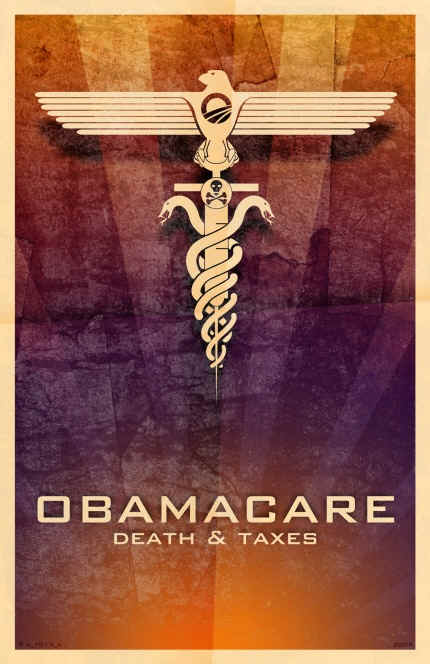 more
accessible seems laudable, but then the solution should be more
competition and less government. And, anyone who is paying
attention to this issue knows that this juggernaut is moving in the
opposite direction. One slice of the current debate that has me
constantly cringing is the issue of insurance. We hear all about
the millions of people without health insurance. The contention
is that we can (partly) solve our problems by roping these folks into
an insurance pool. more
accessible seems laudable, but then the solution should be more
competition and less government. And, anyone who is paying
attention to this issue knows that this juggernaut is moving in the
opposite direction. One slice of the current debate that has me
constantly cringing is the issue of insurance. We hear all about
the millions of people without health insurance. The contention
is that we can (partly) solve our problems by roping these folks into
an insurance pool.
First, let's dispense with the magnitude of the problem. When it
comes to the actual number of "uninsured" there are easy
ways to deflate these figures into something a heck of a lot less
than the 47
million we often hear hyped in the media. Take out 10
million illegals, 17 million that earn more than $50,000 a year and
those that choose no insurance because they feel healthy, and you may
be left with 7 to 8 million people. That is something on the
order of 2% to 3% of the population. It hardly seems like a
crisis point for the country. And, under a free and competitive
environment, I suspect that 80% of these people could be adequately
served.
But, this still begs the question of what is meant by "insurance?" Simply put,
insurance is a mechanism to protect your
wealth when you encounter some event that would otherwise wreak havoc on your
finances. You are not insuring your house, or
your car, or your health. It is your wealth. If you have
no wealth, then insurance isn't especially an issue. When we
hear the argument about "universal coverage," we aren't
talking about insurance. We're talking about defined benefits,
that pretty much everyone expects to access.
You buy insurance to protect yourself from unexpected calamities.
You don't buy insurance to gas up your car, or replace the
tires. You don't buy insurance to paint your house or have a new
roof installed. One of the problems with health insurance is
that these are exactly the kinds of items covered - doctor visits,
shots, etc. That is not what I want to insure against. I
expect to make those kinds of payments. I want insurance for the
big things - like cancer - that I hope will never happen. One
reason that the cost of insurance is so high is that the wrong things
are being paid for, and I am quite certain that will continue under
"universal coverage."
If we are all going to use the
coverage, then it isn't insurance. Over time, we will have to
contribute as much into the system as we get out of it. Now,
that isn't perfectly true, since this will also be like
"progressive" taxes - richer people will pay more. But,
insurance isn't about richer people paying more. It's about
individuals paying the expected amount of the weighted odds of
"collecting" on the insurance. That is, if you have a 1%
chance of a total loss to your $200,000 home over a twenty year
period (e.g., fire), then your insurance would cost $2000 over that
time frame, or $100 per year. If the odds are 100%, then there
is no insurance you can buy! That's the way it works.
So, if we all expect to use health care, say to the tune of $500,000
each, then that is what we'll have to pay for. You can't insure
against it. You can only tax people this amount in order to
"cover" us. That is a fraud. Insurance is
insurance. Benefits are benefits. Confusing the latter
with the former is just another example of political doublespeak.
|
|

|
|
Sunday,
August 30, 2009
  I'm
80% with Beck
- On
Friday's
edition
of the the wildly popular Glenn Beck show on Fox, he
summarized his week-long critique of not only the proliferation of the
"czars," and their unconstitutional power grab, but also the
radical nature of so many in the new administration, and where they
would like to take us. He wrapped the week up with a five point
plan of action. I would say I agree whole-heartedly with three
of his points, but have some reservations about two others. So,
on a scale of 0 to 20, here is how I rate these five
"prescriptions:" I'm
80% with Beck
- On
Friday's
edition
of the the wildly popular Glenn Beck show on Fox, he
summarized his week-long critique of not only the proliferation of the
"czars," and their unconstitutional power grab, but also the
radical nature of so many in the new administration, and where they
would like to take us. He wrapped the week up with a five point
plan of action. I would say I agree whole-heartedly with three
of his points, but have some reservations about two others. So,
on a scale of 0 to 20, here is how I rate these five
"prescriptions:"
 Government
spending should be frozen until the budget is balance.
While increasing spending can be
an aggressive policy insofar as dealing with a recession is
concerned, we have gone way over the top here. I think
that doing too much causes longer term harm by discouraging
private sector reallocation of resources. Besides,
there are better ways to fight a recession. 20 points.
Government
spending should be frozen until the budget is balance.
While increasing spending can be
an aggressive policy insofar as dealing with a recession is
concerned, we have gone way over the top here. I think
that doing too much causes longer term harm by discouraging
private sector reallocation of resources. Besides,
there are better ways to fight a recession. 20 points.
 Don't
raise any taxes until the economy has rebounded.
Absolutely! Even after the economy rebounds, our government is
so bloated, we'll be poorly served by any tax increase, but it
shouldn't even be a issue under active consideration until then.
Even without any discretionary policy changes, a recession pushes the
federal budget into deficit. That is fine with me. Maybe
we should even encourage tax cuts, which would expand this deficit, at
least in the short run.
Don't
raise any taxes until the economy has rebounded.
Absolutely! Even after the economy rebounds, our government is
so bloated, we'll be poorly served by any tax increase, but it
shouldn't even be a issue under active consideration until then.
Even without any discretionary policy changes, a recession pushes the
federal budget into deficit. That is fine with me. Maybe
we should even encourage tax cuts, which would expand this deficit, at
least in the short run.
But, when it comes to the state government,
they face different choices. Unlike the feds, they don't print
money, so can't sustain deficits ad infinitum. The current
Arizona governor is calling for an increase in the sales tax to remedy
a huge budget shortfall. It might be done, but it is a stark
signal that the state budget has been mismanaged for many years.
Ah, there is the problem. During good economic times, state
legislatures/governors act irresponsibly insofar as our long run
fiscal health is concerned. Then, when the economy sours, they
force us to make awful choices between severe spending cuts or tax
increases. The fools. And, us, too, for letting them get
away with it. 20 points here, too.
 The
U.S. is the greatest nation on earth and doesn't need to apologize to
anyone for anything.
Hear, hear! That isn't to
say we don't make mistakes or cause harm. But, I, too,
am sick and tired of the "blame America" crowd who seem to
think that we are the scourge of mankind, rather than the
single, best, hope for a better future. 20 points.
The
U.S. is the greatest nation on earth and doesn't need to apologize to
anyone for anything.
Hear, hear! That isn't to
say we don't make mistakes or cause harm. But, I, too,
am sick and tired of the "blame America" crowd who seem to
think that we are the scourge of mankind, rather than the
single, best, hope for a better future. 20 points.
 Our
borders need to be closed except for designated immigration points.
Well, I understand some of the
frustration here. Especially when we have a system of social
welfare that taxes Americans and legal aliens for services enjoyed
by illegal aliens. I would much rather see wide open borders
(well, maybe with perfunctory data collection - name and passport
information, etc.) and an end to these social services. Let's
not make it a crime to want to come to the U.S. to work hard and
make a new life for oneself. But, until we return to our roots
insofar as the proper role of government is concerned, I'll
grudgingly support this measure as well. 12 points.
Our
borders need to be closed except for designated immigration points.
Well, I understand some of the
frustration here. Especially when we have a system of social
welfare that taxes Americans and legal aliens for services enjoyed
by illegal aliens. I would much rather see wide open borders
(well, maybe with perfunctory data collection - name and passport
information, etc.) and an end to these social services. Let's
not make it a crime to want to come to the U.S. to work hard and
make a new life for oneself. But, until we return to our roots
insofar as the proper role of government is concerned, I'll
grudgingly support this measure as well. 12 points.
 Our
dependence on foreign oil is a "travesty" and we need an
"energy plan that increases usage of domestic resources."
I think that there are a couple of ways to take this one. If you
want this to be about our "energy independence" and about
more government planning, then I think this is an awful idea.
[See, for example, John Stossel's excellent commentary, The
Idiocy of Energy Independence.] If this is all about
reducing regulations to allow for a more robust domestic market here,
then I am all in favor and I would suspect that our import of foreign
oil would fall over time. But, the key here is market freedom,
not some anti-trade agenda. Free trade is great. It raises
our standard of living. It also raises the standard of living of
other people, some of whom you may disagree with. Well, as long
as we aren't at war with them, I don't have a specific problem
here. I do believe that increased trade tends to benefit our
ideology in the long run. That is, even if we trade with
generally awful states (and, as consumers, we can always choose to
shun trade with these countries and accept the burden it places on us
and them), this inevitably leads to more interaction between cultures
and ours, to the extent we still champion freedom and liberty, should
be the more appealing. I am a bit unsure exactly where Beck
stands on this one, so I am only going to give him 8 points.
Our
dependence on foreign oil is a "travesty" and we need an
"energy plan that increases usage of domestic resources."
I think that there are a couple of ways to take this one. If you
want this to be about our "energy independence" and about
more government planning, then I think this is an awful idea.
[See, for example, John Stossel's excellent commentary, The
Idiocy of Energy Independence.] If this is all about
reducing regulations to allow for a more robust domestic market here,
then I am all in favor and I would suspect that our import of foreign
oil would fall over time. But, the key here is market freedom,
not some anti-trade agenda. Free trade is great. It raises
our standard of living. It also raises the standard of living of
other people, some of whom you may disagree with. Well, as long
as we aren't at war with them, I don't have a specific problem
here. I do believe that increased trade tends to benefit our
ideology in the long run. That is, even if we trade with
generally awful states (and, as consumers, we can always choose to
shun trade with these countries and accept the burden it places on us
and them), this inevitably leads to more interaction between cultures
and ours, to the extent we still champion freedom and liberty, should
be the more appealing. I am a bit unsure exactly where Beck
stands on this one, so I am only going to give him 8 points.
The final tally is 80 points for Beck. Not bad, all things
considered. With whom, after all, do we ever agree all the
time? So, now it's time to get back to work on my protest sign
for the upcoming tea party. Where is that piece of Astroturf I
was going to use as a prop . . . ?
|
|

|
|
Sunday,
September 13, 2009
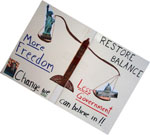  Flagstaff
Tea Party
- It
is hard to believe that it has been two weeks since the Tea
Party Express rolled through our fair hamlet of Flagstaff. I
think it must be our auspicious Flagstaff
Tea Party
- It
is hard to believe that it has been two weeks since the Tea
Party Express rolled through our fair hamlet of Flagstaff. I
think it must be our auspicious  position
on Interstate 40 - a few years ago we were also favored with a visit
from the Ending
Earmarks Express - since we are smack dab in the bluest of the
blue areas in this otherwise red state. I guess that makes
sense, as the government is the largest employer here, and by a long
margin! position
on Interstate 40 - a few years ago we were also favored with a visit
from the Ending
Earmarks Express - since we are smack dab in the bluest of the
blue areas in this otherwise red state. I guess that makes
sense, as the government is the largest employer here, and by a long
margin!
The party started in the early evening, but folks started assembling
well in advance of six o'clock. One of the highlights was that
we were featured on Fox News, especially at the front end of both the Hannity
show and On
The Record
with Greta Susteren. I taped those shows and could see  part
of my sign showing though those closer to the camera. The two
sides of my sign are shown to the left and right, above. Cara
Lynn also made a sign (see below) as did a colleague of mine who
retired a few years ago - LOL to the right. part
of my sign showing though those closer to the camera. The two
sides of my sign are shown to the left and right, above. Cara
Lynn also made a sign (see below) as did a colleague of mine who
retired a few years ago - LOL to the right.
The crowd was large and enthusiastic. The folks running the show
have honed their message and staged an event that is informative and
entertaining. While we had some mighty dark clouds threatening,
we stayed dry. We also heard from some local voices, including
Tom Jenney, the Arizona director of the Americans
for Prosperity. Tom and I go back to the days he was the
Communications Director for the Goldwater Institute. We also
heard from Arizona State Treasurer Dean Martin, who is one of a small
group of politicians that I really believe would be great for our
state in a higher office. While we currently have an unintended
Republican governor (because Dem Janet Napolitano left to become
Homeland Security Secretary in D.C.), I still like Martin's chances in
the primary and general next year.
There were
a handful of protesters and they lined up on the opposite side of
the street. I didn't realize that they were protesting until
we were about to head home and decided to spend a few minutes on the
street waving to passersby. There were some catcalls going on
back and forth across the street, but it seemed mostly in good fun.
On the other hand, I did have an interesting encounter with one of the
food vendors, who asked why everyone was opposed to health care.
At first, I thought he was just making a joke. But, he went on,
and despite my attempt to be both reasonable and courteous, wouldn't
really listen to any other view. His opinion was succinctly
stated as, "The
job of government is to take care of us."
I don't think he heard my reply that there is no such role for
government spelled out in the constitution. But, I think that
his view is exactly what the left-wing believes and it is so
antithetical to the founding principles of our country that it is a
wonder their heads don't explode from their inability to resolve the
contradiction between liberty and freedom, on the one hand, and the
desire to take what isn't theirs, from someone else, and justify it as
being somehow "just."
|
|

|

|

|

|

|